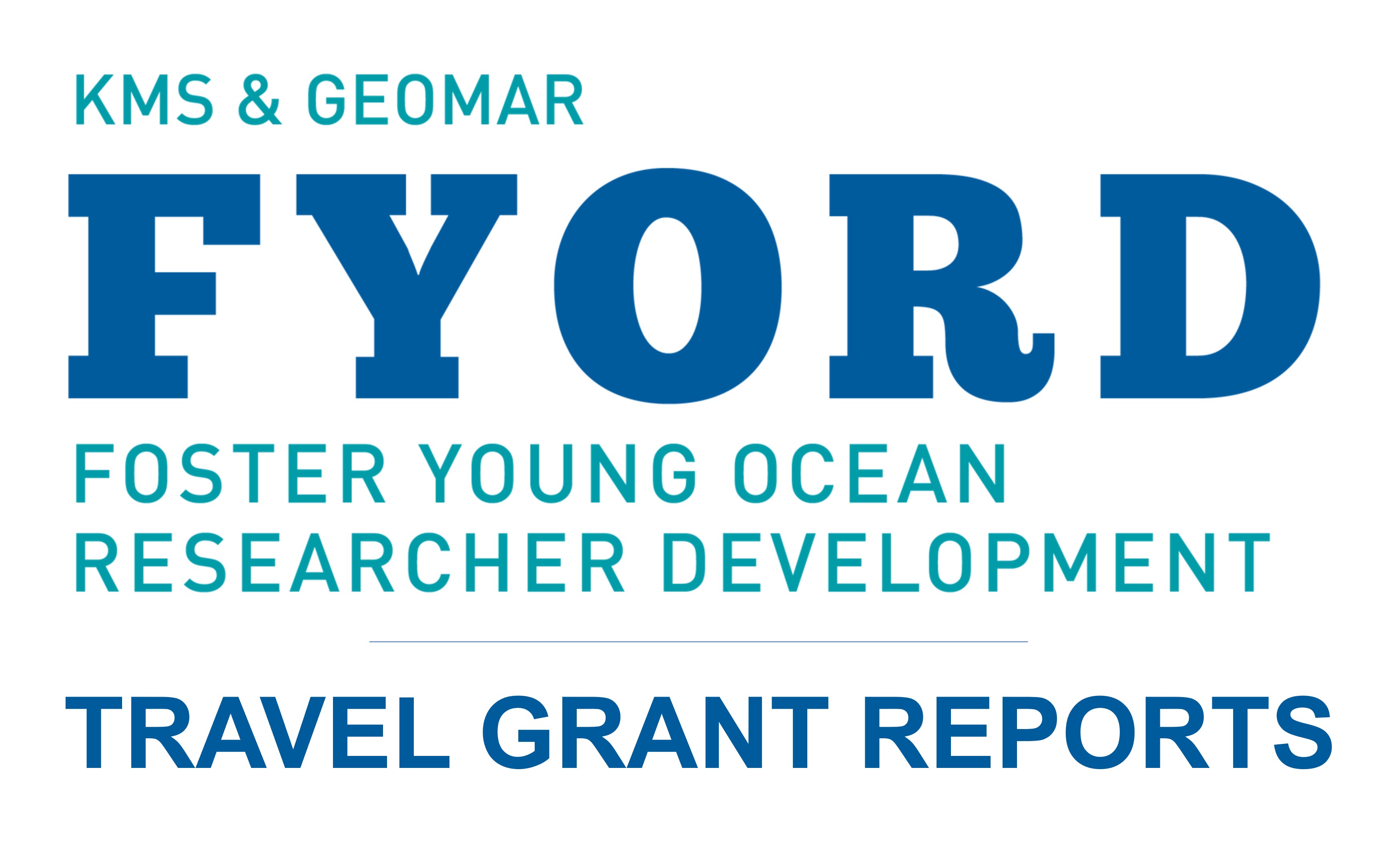The 17th Deep-Sea Biology Symposium in Hong Kong
I am Véronique Merten, a postdoc in the Deep-Sea Biology Group at GEOMAR Helmholtz Centre for Ocean Research Kiel. In my research, I focus on deep-sea organisms, with a particular interest in squids (cephalopods) and whales (cetaceans). By combining environmental DNA analysis with techniques like biologging, net trawls, and video observations, I study predator-prey interactions and establish biodiversity baselines to trace ecosystem changes and identify biogeographic patterns. Overall, my work advanced eDNA analysis for cephalopods and addresses ecological questions on biodiversity, predator-prey dynamics, biogeographical separation, carbon fluxes, and range expansions.
Thanks to the FYORD travel grant, I was able to attend the 17th Deep-Sea Biology Symposium (DSBS). The DSBS is a triennial international meeting that aims to bring together global experts with a strong interest in deep-sea biological science, biodiversity conservation, and deep-sea environmental policy and management, all with the goal of enhancing the protection of deep-sea biodiversity and ecosystems. Previous conferences have been held in Sweden, Germany, France, Denmark, Greece, USA, Ireland, UK, Iceland, New Zealand and Portugal, but this year was special as the conference was being held for the first time in Asia at the University of Science and Technology, Hong Kong SAR, China.

Picture taken by Vanessa Stenvers. Véronique giving her talk. 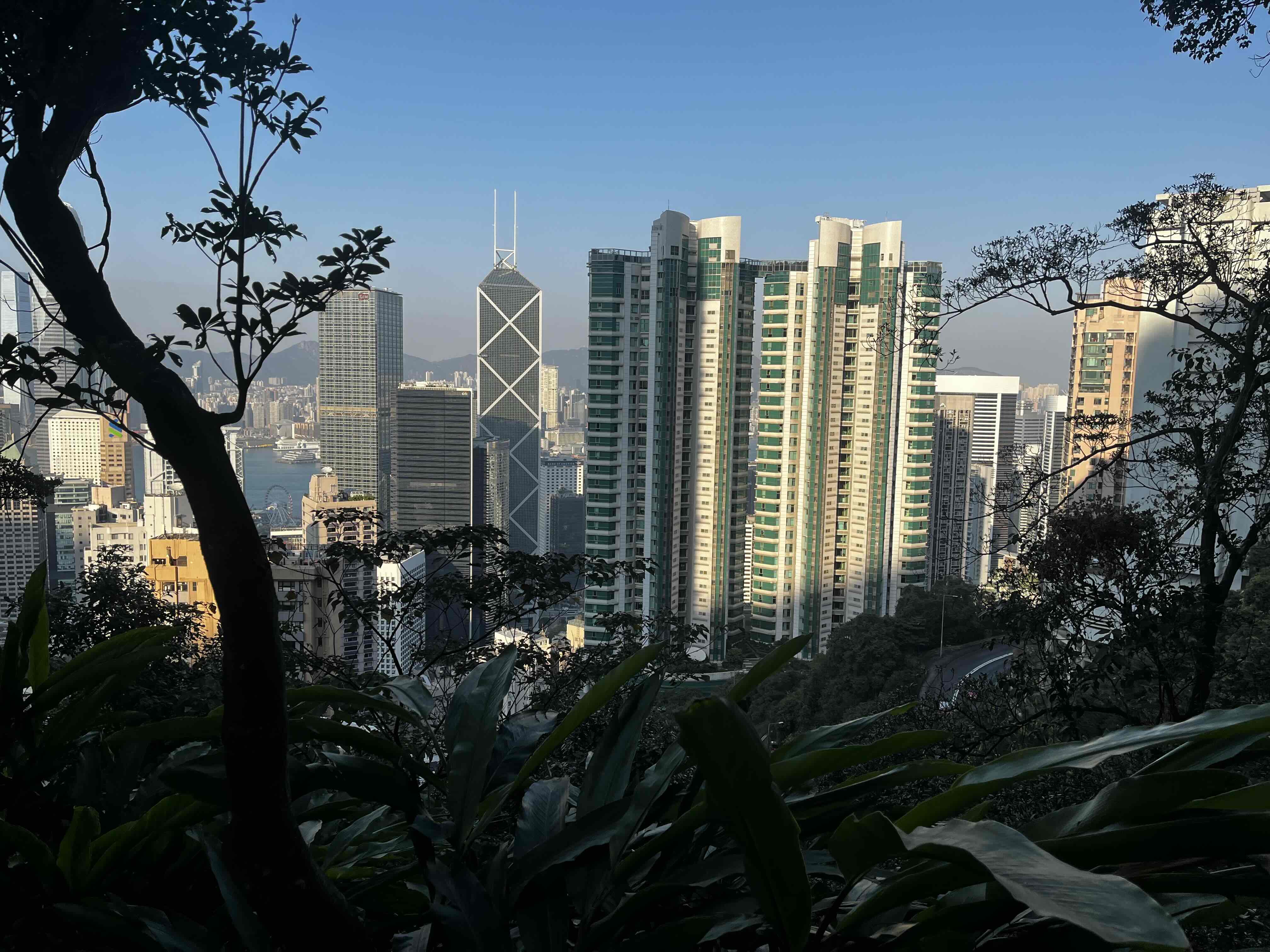
Hong Kong
Around 400 researchers from about 30 nations participated in the one-week event that took place from January 12 to January 17, 20205. This was the third time that I attended the DSBS, and this time, I not only had the chance to present my science in a talk but also hosted the session “Deep Pelagic Ocean” together with my colleagues Vanessa Stenvers and Henk-Jan Hoving. I am grateful to FYORD for awarding me the travel grant that enabled my attendance at the DSBS. This opportunity allowed me to participate in insightful discussions and helped me build connections with leading experts in the field, fostering collaborations that will enhance my future research and professional growth. The DSBS organizers in Hong Kong did a great job in organising a well-structured and engaging conference. Hosting a session was a valuable new skill that allowed me to develop my leadership abilities, enhance my public speaking confidence, and actively contribute to the conference’s success. The nice thing about this conference is its manageable size, with only two sessions running in parallel.
I would strongly encourage all early-career scientists with an interest in deep-sea biology to consider participating in the Deep-Sea Biology Symposium. This event offers an exceptional opportunity to connect with leading experts in the field, learn about the latest research and discoveries, and gain valuable insights that can help shape and advance their scientific careers.
Véronique Merten
Xiamen Symposium on Marine Environmental Sciences 2025
I am Haichao Guo, a Ph.D. candidate at GEOMAR – Helmholtz Centre for Ocean Research Kiel. My research focuses on ocean deoxygenation—the alarming decline in dissolved oxygen levels across marine ecosystems—a phenomenon recognized by the IPCC as a critical threat to ocean health. Driven by climate change, nutrient pollution, and shifts in ocean circulation, deoxygenation disrupts marine biodiversity, destabilizes biogeochemical cycles (e.g., carbon and nitrogen), and exacerbates risks to fisheries and coastal economies. My work integrates multidisciplinary approaches, combining large compiled observational datasets with advanced climate model simulations to disentangle the drivers of oxygen loss, including warming-induced stratification, reduced ventilation, and microbial respiration dynamics. By quantifying these mechanisms, I aim to improve projections of oxygen decline under future climate scenarios, providing actionable insights for policymakers and conservation strategies to mitigate cascading impacts on marine life and global climate stability.
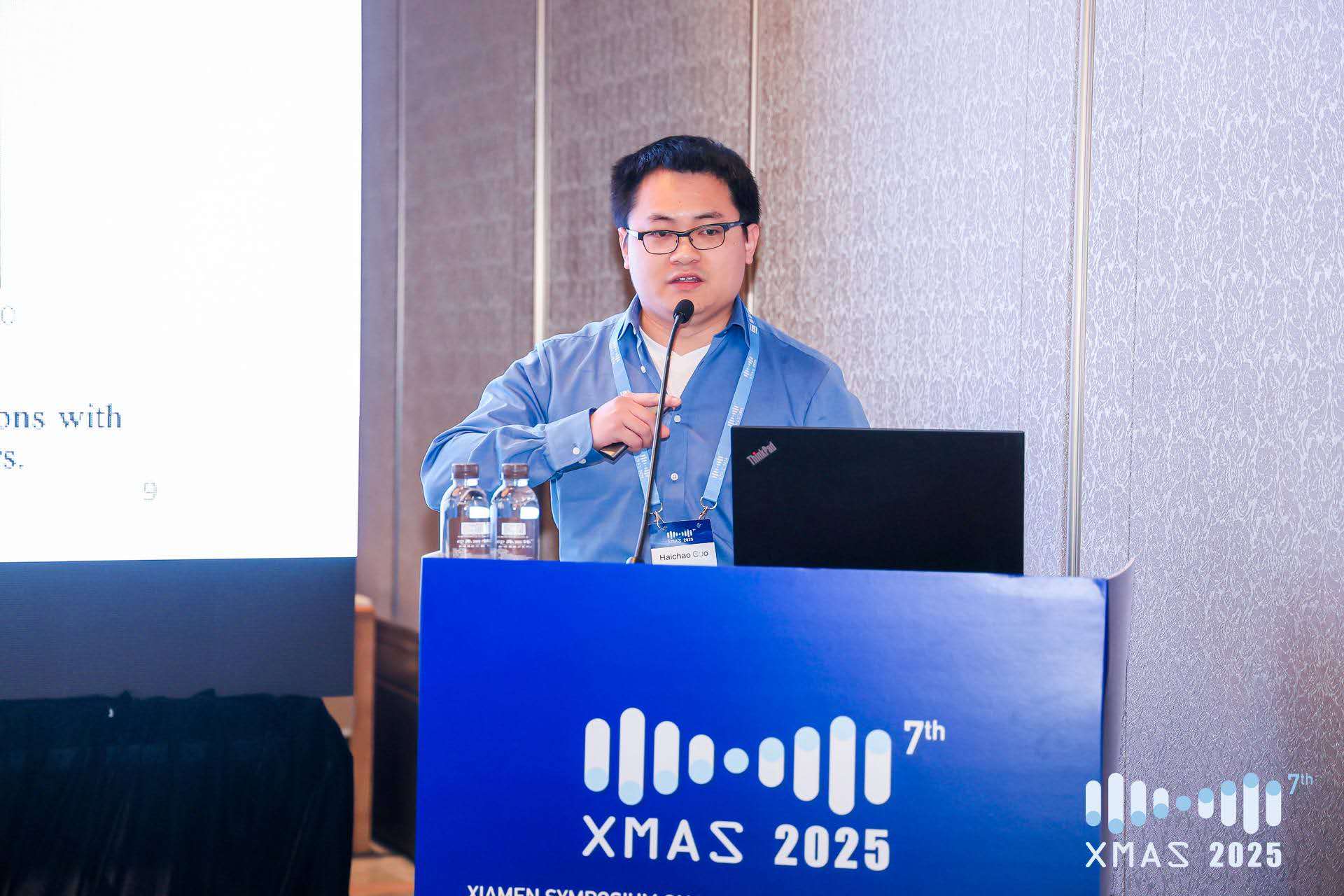
Haichao presenting at XMAS 2025 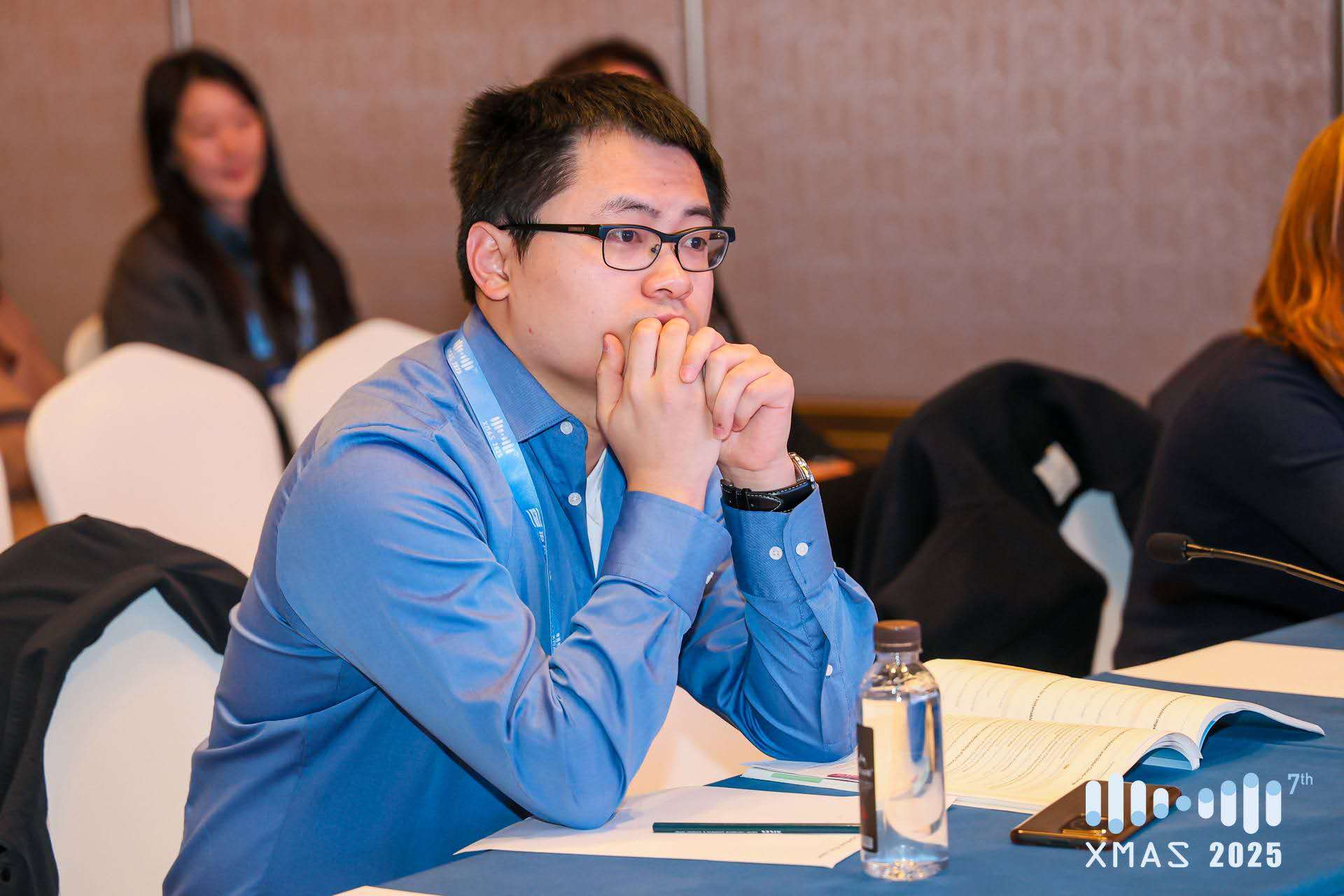
Haichao during a conference session
With generous support from FYORD, I participated in the Xiamen Symposium on Marine Environmental Sciences 2025 (XMAS2025), a premier international conference held in Xiamen, China, from January 14th to 17th, 2025. This conference consists of interdisciplinary, cutting-edge sessions covering physical, chemical, and biological oceanography as well as marine pollution. The conference attracts over 1,700 participants from 36 countries. I am honoured to contribute to this conference as co-convenor of Session 15: Ocean Deoxygenation: Drivers, Trends, and Biogeochemical-Ecosystem Impacts. Also, I am a presenter for the talk “Changes of ventilation in the North Atlantic over the past three decades – a climate change signal”.
Participating in XMAS2025 was an enriching experience that expanded my understanding of marine environmental sciences. The conference’s diverse and interdisciplinary nature, along with the excellent organization and support from the local committee, made it a valuable opportunity for sharing my ideas and having inspiring discussions with experts and international peers from around the world on my focused scientific question. With over 1,700 participants and good internationalization, the conference offered an excellent platform to build networks with fellow experts in my field and foster potential collaborations.
Haichao Guo
An Ocean Conference in the Alps
After a long train ride passing through Hamburg, Frankfurt, Strasbourg and Lyon, I arrived in Grenoble on a January evening with surprisingly mild temperatures of 14°C. Since it was dark already when I arrived, I only had the chance to see the city the next morning. As I stepped outside the hotel, I was blown away by a breathtaking view of the snow-covered mountain peaks surrounding the city. Growing up in Munich, this view made me remember how much I missed the mountains in the flatness of Kiel. It was Sunday and I had the day off, so I took the opportunity to take a walk around the old town centre of Grenoble and found it to be a quite cozy place with small alleys, historic buildings and a tiny marketplace. Another special feature is a cable car going across the river Isere to an old fortress on the adjacent hill.
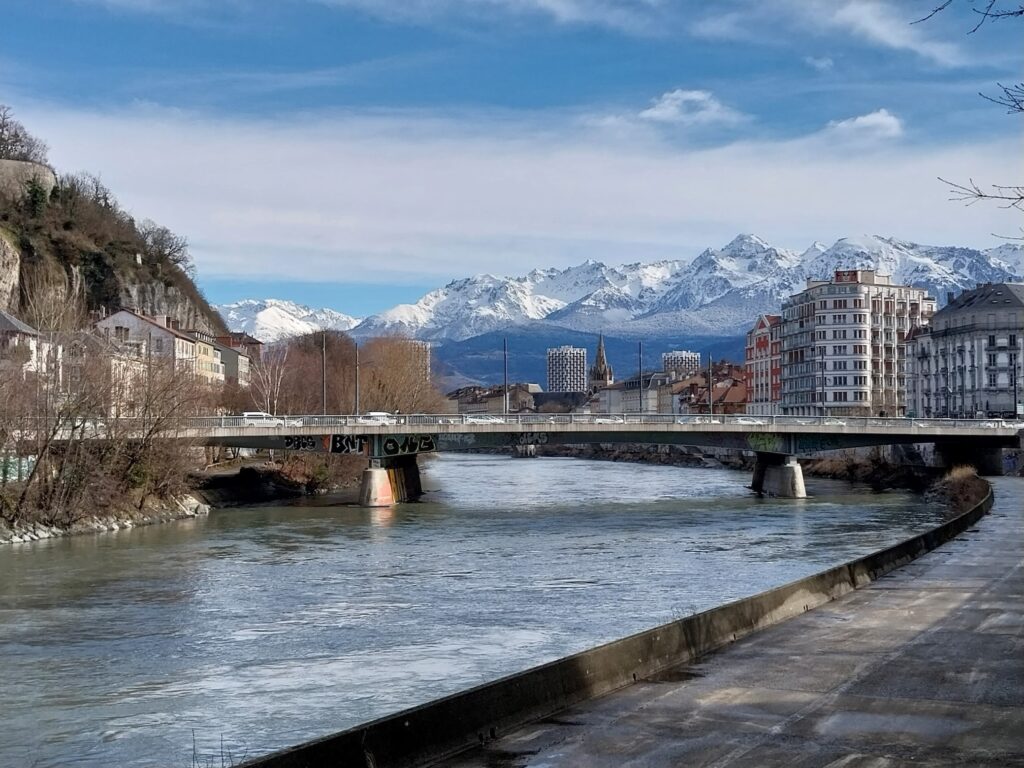
Mountains of Grenoble 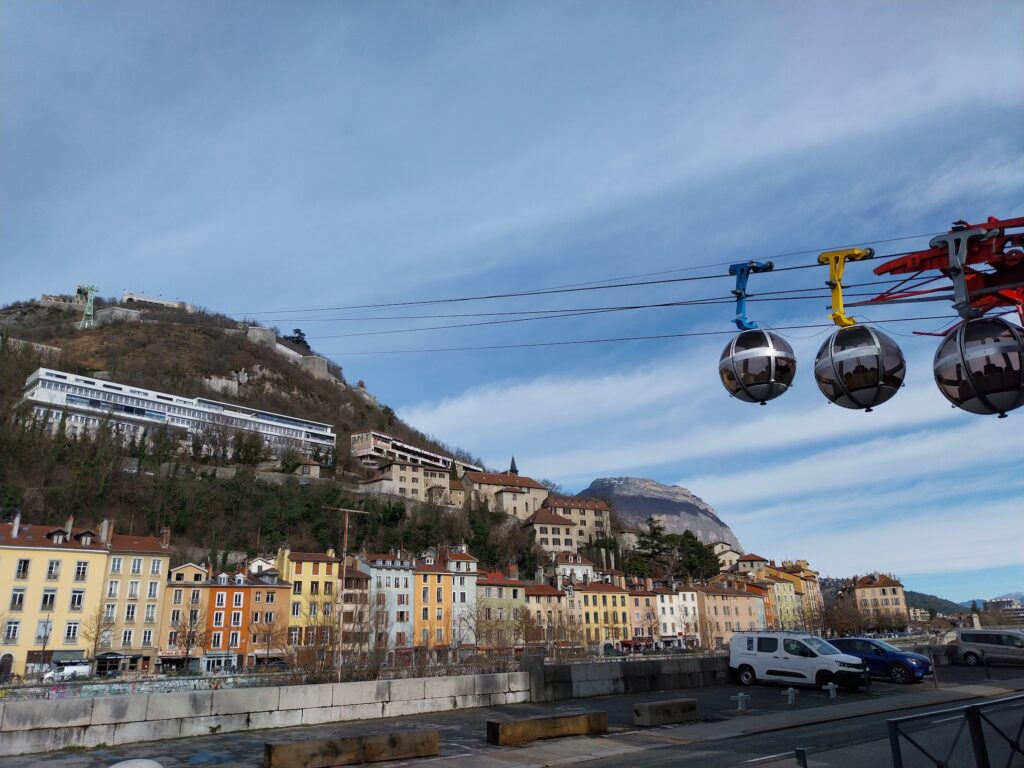
Cable car across the river
The 2.5-day workshop started the next day in the IMAG (informatics and maths) building of the Université Grenoble Alpes. It was a really nice tram ride every morning from the city centre to the campus on the edge of the city. The workshop covered a wide range of topics, all revolving around ocean modelling and specifically the European Ocean Model NEMO. These topics included current use cases and scientific applications of NEMO around the world, the recent development of the next version of NEMO (NEMO5) and associated novelties and innovations, and possible future advancements. The programme included three different presentation formats: keynote talks, short talks and posters. This way, a large number of contributions could be considered for the workshop. The sessions were indeed quite intense, with a lot of information condensed into the individual talks. While it was somewhat exhausting to try and follow all the talks, it was also great to see the immense variety of NEMO usage from all the different institutes in different countries. My own talk and poster revolved around the phenomenon of deep convection events in the Southern Ocean and how they are represented in an ocean model. In this regard, one of the greatest benefits for me personally in joining the workshop was to meet all the researchers and developers from all over and talk to them about my research as well as their pathways as scientists in ocean modelling. One highlight was to talk to genuine leaders of the field like Anne-Marie Tregier, Mike Bell, Paul Myers and Carolina Dufour. Also, the conference dinner, which took place in an erstwhile small church in the city centre, was a pleasant experience and a great opportunity to get to know people on a personal level.
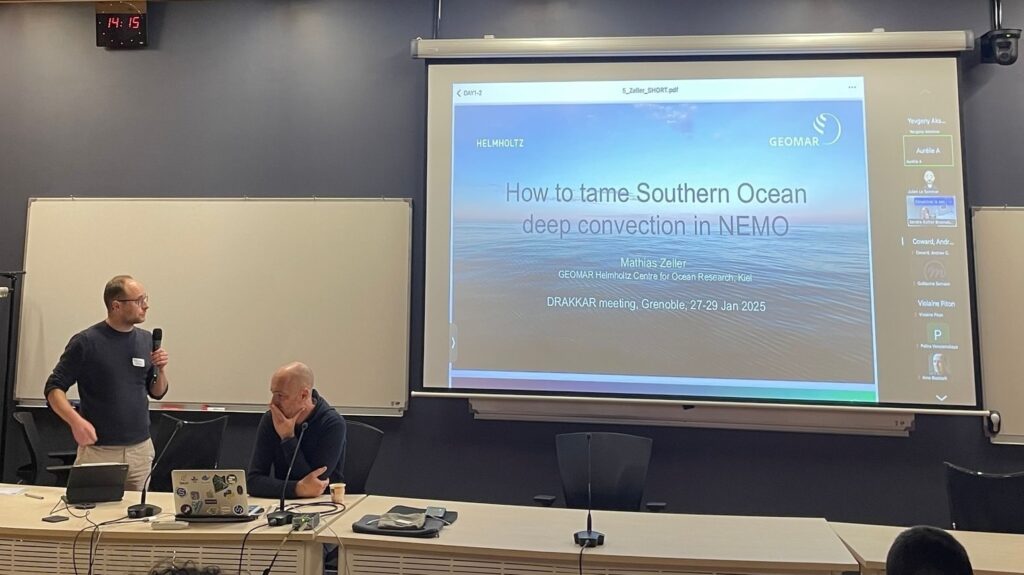
Mathias during his presentation
Finally, it was wonderful to also meet a couple of old friends, some of whom I have not seen in quite a while. Overall, the workshop was a great success, and I am thankful for the FYORD travel grant facilitating my participation in this event.
Mathias Zeller
